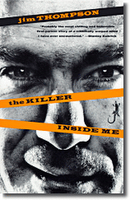 At the Guardian, she named her top ten books on the ancient world.
At the Guardian, she named her top ten books on the ancient world.One book on the list:
I, Claudius by Robert Graves (1934)Read about the other entries on the list.
Violent, dirty, shocking, funny, erudite, utterly compelling – Graves's account of the Julio-Claudian emperors of Rome has become a classic, immortalised in the great 1973 BBC series of the same name. The novel is supposedly the autobiography of the emperor Claudius, who survived to adulthood only by pretending to be an idiot. Graves himself is supposed to have claimed to dislike the books, and wrote them only out of financial need.
I, Claudius also appears on Lindsey Davis' top ten list of Roman books and John Mullan's list of ten of the best poisonings in literature.
--Marshal Zeringue






































